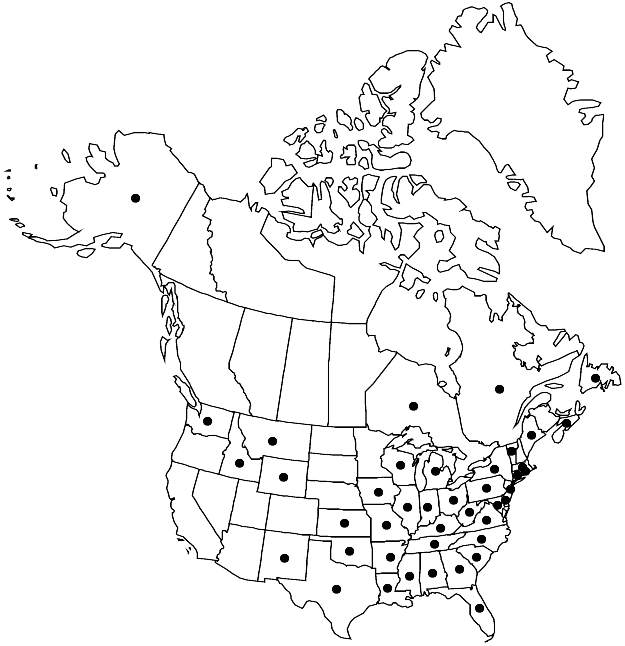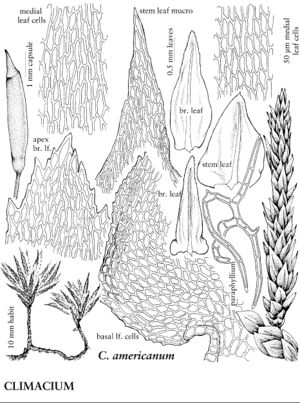Climacium americanum
Muscol. Recent., suppl. 2: 45. 1812.
Plants sordid, yellow or yellow-green, dull when dry. Stem leaves with apex broadly to sharply acute, sometimes apiculate; laminal cells near insertion with walls thick, porose. Branch leaves with base sharply flexuose-auriculate; apex acute; medial laminal cells (2–)3–5(–7):1. Capsule long-cylindric, 3.5–6 mm.
Phenology: Capsules mature fall.
Habitat: Mesic or hydric microhabitats, along and in streams, margins of ponds and lakes, swamps, fens, seepages, upland depressions, mineral, sandy to clay soil
Elevation: low to high elevations
Distribution

Nfld. and Labr. (Nfld.), N.S., Ont., Que., Ala., Alaska, Ark., Conn., Del., Fla., Ga., Idaho, Ill., Ind., Iowa, Kans., Ky., La., Maine, Md., Mass., Mich., Miss., Mo., Mont., N.J., N.Mex., N.Y., N.C., Ohio, Okla., Pa., R.I., S.C., Tenn., Tex., Vt., Va., Wash., W.Va., Wis., Wyo., Asia (China).
Discussion
In Climacium americanum, the basal angles of leaves may abruptly extend beyond the leaf outline into an auricle, usually delineated from the distal leaf outline by a short undulation and a shoulder, in addition to being sharply rounded into the insertion area. The capsules of C. americanum are very much larger than those of C. dendroides.
Climacium kindbergii, treated here as a synonym of C. americanum, has been distinguished by a prostrate or decumbent, not dendroid-erect, habit. This habit is apparently a response to inundation although there is molecular evidence that C. kindbergii is reproductively isolated from C. americanum (A. J. Shaw et al. 1987b, 1994, 2012). Given that any isolation will encourage molecular differences, this is not conclusive of distinction at the species level.
